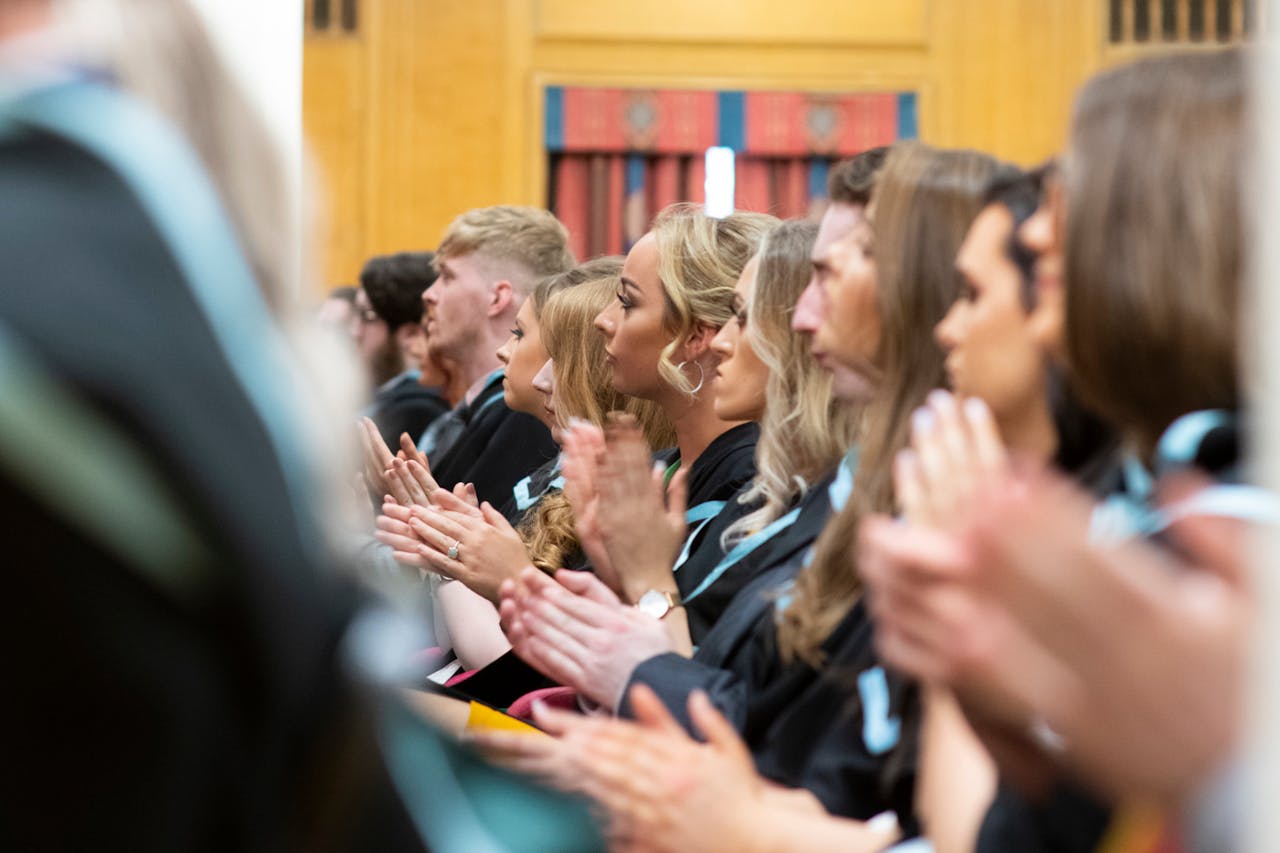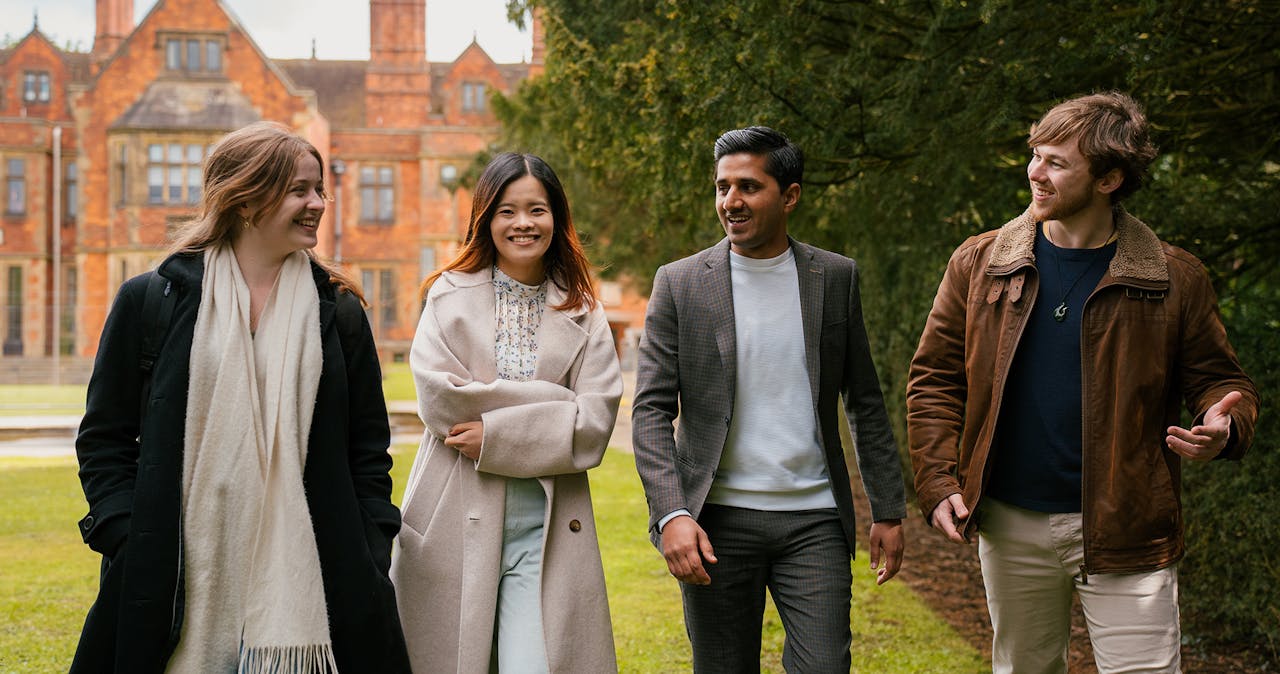Who is considered a student with parenting responsibilities?
A student is considered as having “parenting responsibilities” if they are responsible for the care and wellbeing of a child aged 17 or under. This may include being:
- A biological parent
- A stepparent
- An adoptive or legal parent
- A legally appointed guardian
- A foster carer
- Someone providing kinship or other parental care for a family member or friend (UCAS).
“Being responsible for care and wellbeing” may involve providing a home, looking after their health and wellbeing, financially supporting them, and ensuring their educational and medical needs are met (UCAS, 2023).
Common barriers students with parenting responsibilities may face
This group of students can face barriers when considering and attending higher education, such as:
- Financial concerns
- Time-restraints, which can affect their academic attainment
- Stress and wellbeing struggles from having to balance multiple priorities
Student parents can also suffer from a lack of information. Not knowing about the support and funding available to them in higher education can result in low aspirations and unclaimed support, preventing many from starting or completing their degree (Brightside Trust, 2015).
What support do Russell Group Universities have available for these students?
Despite these barriers, research has found that 75% of student parents believe that higher education has been positive for themselves and their families, and as a group they consistently display genuine enthusiasm for their courses (NUS, 2009).
The charity Gingerbread, which campaigns for and supports single parents and their children, emphasises that while completing a degree as a parent can be challenging, it can also be hugely rewarding. Denise’s story of successfully completing her Masters degree is a powerful example of the resilience and determination many student parents show.
Russell Group universities recognise the barriers which affect student parents when applying to and attending university and aim to support these students to reach their full potential. The level and type of support can vary across the 24 institutions, but all are committed to fostering an inclusive and supportive environment for student parents.
Here are the main areas where student parents can access support:
1. Pre-Entry Support
Student parents can access support even before they even apply to university with a variety of resources available to them, including the following:
Contextual Offers
Many Russell Group universities offer contextual offers which are reduced grade requirements for applicants facing additional challenges. For example, the Access+ Support scheme at the University of Sheffield provides a contextual offer of up to two grades below the typical requirement, along with extra consideration during exam results.
Contextual offers vary by university and course, so it’s important to check individual university websites for up-to-date details and eligibility. You can find out more about contextual admissions by booking our free CPD session.
Travel funds
Many universities provide travel funds to help student parents attend Open Days. For instance, the LSE Travel Fund supports prospective students who may struggle with the costs of vising their campus. Whilst travel support funding may not explicitly state that it is available for students with parenting responsibilities, your student may still be eligible. If you or your students are unsure, it is always worth contacting the university’s Outreach Team to check what support may be available.
2. Support during university
Financial support
Many universities offer funding to support students who are facing a period of financial hardship. This includes Emergency Loans or Cost of Living Support Funds, which can serve as a safety net for students with parenting responsibilities.
Several universities also provide childcare specific financial support. For example:
In addition, some universities encourage student parents to engage in extracurricular activities, so that they can experience all facets of university life. For example, The University of Manchester has an Access to Recreation Grant, which allows students to claim up to £250 towards University and Students’ Union registered recreational activities.
It’s important to note that if a student cares for someone aged under 18, they are automatically considered as an independent student by Student Finance England. This means their student loan eligibility is assessed based on their own income, even if they still live with their parents. This can provide an extra layer of financial support to student parents. There is also additional financial support available for student parents in Scotland, Wales and Northern Ireland. Remember to highlight this when students are considering their future options.
Accommodation and Childcare Support
Family-friendly accommodation and childcare options are vital for student parents facing the prospect of university.
Many Russell Group universities have on-campus nurseries available or collaborate with local childcare providers. Other universities may provide financial support towards nursery fees Examples include:
While family accommodation is available at many universities, it’s often limited, so early application is essential. Some universities also extend financial support to accommodation costs, such as LSE’s accommodation bursary. In addition, many on-campus residences offer in-house support teams which students can access assistance from if they experience any issues. For example, each Cambridge College has a childcare contact who can offer information about childcare, family accommodation, and financial support.
3. Study, social life and wellbeing support
Maintaining wellbeing and building a support network can make a significant difference when empowering student parents to continue with their studies at university. Many Russell Group institutions have designated support networks for students with parenting responsibilities which offer community, advise and practical guidance. For example:
Furthermore, universities also have dedicated teams who provide information on childcare, schooling, financial support and mental health. Examples include:
In summary
Universities are committed to supporting student parents to succeed, offering financial aid, childcare offers, housing and dedicated networks to help balance study and family life. If you or your student are ever unsure about the support available, please contact universities directly to find out more.
How you can support your students
Encourage transparency in the UCAS application.
Encourage your students to share their parenting responsibilities in the “More about you” section of their UCAS application. They can do this by selecting “yes” when asked if they have any parenting responsibilities.
They don’t have to share any further information, but should they wish to, they can write more about their experience in their personal statement. Reassure them that this information will not negatively impact their application—instead, it will be used to help provide tailored support throughout their university journey.
Ease their concerns
Help your students with parenting responsibilities feel confident about their options. Let them know that there is support available at higher education and show them how to find it. Signpost resources like the UCAS guide for students with parenting responsibilities, and individual university websites. If your students have concerns or any questions, encourage them to get in contact with their chosen university to discuss any support they may need.
Support their research
Student parents often report that they lack the information they need to make informed decisions about the transition to higher education (Brightside Trust, 2015). There is a lot to consider, from applying for family accommodation and financial support, to researching childcare facilities. Give your students the time and space to research the support available, and encourage them to weigh all possibilities to ensure they make the best decision for their future.




